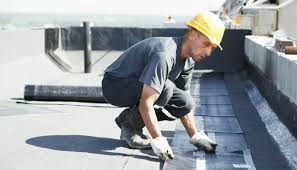Roof Waterproofing Specialist
Roof waterproofing is a critical aspect of building maintenance, protecting properties from water damage, mold, and structural issues. Whether you’re dealing with a residential home or a commercial building, hiring a roof waterproofing specialist ensures that your roof is equipped to handle the elements. In this article, we’ll discuss the role of a roof waterproofing specialist, the benefits of their expertise, and what to consider when selecting the right professional for your project.
The Role of a Roof Waterproofing Specialist
A roof waterproofing specialist is a professional with expertise in protecting roofs from water infiltration. They are trained to assess the condition of your roof, identify potential problem areas, and apply the appropriate waterproofing solutions. Here are some of the key responsibilities of a roof waterproofing specialist:
-
Inspection and Assessment: A specialist conducts a thorough inspection of the roof to identify existing issues such as leaks, cracks, or areas prone to water pooling. This assessment helps determine the best waterproofing solution tailored to the specific needs of the roof.
-
Material Selection: With a deep understanding of different waterproofing materials, specialists recommend the most suitable products for your roof type. Whether it’s a flat roof, sloped roof, or a roof with complex structures, they choose materials that offer durability, flexibility, and long-lasting protection.
-
Application of Waterproofing Solutions: Roof waterproofing specialists are skilled in applying various waterproofing methods, such as liquid membranes, bituminous coatings, and rubberized systems. They ensure that the application is done correctly, covering all potential weak spots and providing a seamless barrier against water.
-
Repairs and Maintenance: In addition to waterproofing, specialists also repair any existing damage on the roof. This may include fixing leaks, replacing damaged shingles, or sealing cracks. Regular maintenance services are often provided to ensure the roof remains watertight over time.
-
Consultation and Advice: Beyond the technical work, specialists offer valuable advice on how to maintain the roof and prevent future water damage. They can provide guidance on issues like proper drainage, insulation, and how to handle minor repairs before they become major problems.
Benefits of Hiring a Roof Waterproofing Specialist
While some homeowners or property managers may consider waterproofing as a DIY project, the complexity of roof waterproofing is best handled by a specialist. Here are the key benefits of hiring a professional roof waterproofing specialist:
-
Expertise and Experience: Specialists bring years of experience and in-depth knowledge of waterproofing techniques. Their expertise allows them to diagnose problems accurately and implement solutions that are both effective and long-lasting.
-
Quality Materials and Workmanship: Roof waterproofing specialists have access to high-quality materials that are not always available to the general public. They know which products work best for different roofing systems and climates, ensuring that your roof is protected by the best materials available.
-
Cost-Effective Solutions: While hiring a specialist involves an upfront cost, it can save you money in the long run by preventing costly water damage and roof repairs. Specialists know how to apply waterproofing efficiently, reducing waste and ensuring that the job is done right the first time.
-
Safety: Roof work can be dangerous, especially for those without proper training and equipment. Specialists are trained in safety protocols and have the necessary tools to work on roofs of all types and heights, minimizing the risk of accidents.
-
Peace of Mind: When you hire a roof waterproofing specialist, you can be confident that your roof is in good hands. They offer warranties on their work, giving you peace of mind that if any issues arise, they will be addressed promptly and professionally.
Common Waterproofing Solutions Used by Specialists
Roof waterproofing specialists use a variety of techniques and materials, depending on the specific needs of the roof and the building. Here are some of the most common waterproofing solutions:
-
Liquid Waterproofing Membranes: These are applied as a liquid and dry to form a seamless, rubber-like membrane that covers the entire roof surface. Liquid membranes are versatile and can be used on both flat and sloped roofs. They are particularly effective in areas with complex roof structures or multiple penetrations.
-
Bituminous Waterproofing: Bituminous coatings are made from asphalt and can be applied as a liquid or in sheet form. These coatings provide a durable, water-resistant layer that is ideal for flat roofs and commercial buildings. Bituminous waterproofing is known for its longevity and resistance to extreme weather conditions.
-
EPDM Rubber Roofing: EPDM is a synthetic rubber membrane that is highly durable and flexible. It is commonly used for flat roofs and offers excellent resistance to UV rays, ozone, and temperature fluctuations. EPDM is often used in large sheets, minimizing seams and reducing the risk of leaks.
-
Polyurethane Waterproofing: Polyurethane coatings are applied as a liquid and cure to form a highly elastic and durable membrane. This material is ideal for roofs that experience significant expansion and contraction due to temperature changes. Polyurethane waterproofing is commonly used on flat roofs, terraces, and balconies.
-
TPO and PVC Roofing Membranes: Thermoplastic Olefin (TPO) and Polyvinyl Chloride (PVC) membranes are popular choices for commercial roofs. These synthetic membranes are heat-welded at the seams, creating a continuous, waterproof barrier. TPO and PVC membranes are known for their energy efficiency, reflecting sunlight and reducing cooling costs.
How to Choose the Right Roof Waterproofing Specialist
Selecting the right roof waterproofing specialist is crucial for ensuring the success of your project. Here are some tips to help you make the best choice:
-
Check Credentials and Experience: Look for a specialist with relevant certifications, licenses, and insurance. Experience is also a key factor; choose a professional who has successfully completed similar projects and has a strong portfolio of work.
-
Read Reviews and Ask for References: Online reviews and testimonials can provide insights into the quality of the specialist’s work. Additionally, ask for references from previous clients to get a firsthand account of their experience with the specialist.
-
Request Detailed Quotes: Obtain quotes from multiple specialists to compare pricing and services. Make sure the quote includes all aspects of the project, such as materials, labor, and any additional services like repairs or maintenance.
-
Evaluate Communication and Customer Service: A good specialist should be responsive, willing to answer your questions, and provide clear explanations of the work to be done. Good communication is essential for ensuring that the project runs smoothly and meets your expectations.
-
Inquire About Warranties: A reputable roof waterproofing specialist should offer a warranty on both the materials and workmanship. This warranty provides assurance that the specialist stands behind their work and will address any issues that arise after the project is completed.
Conclusion
Roof waterproofing is a vital service that protects your property from water damage and extends the life of your roof. By hiring a roof waterproofing specialist, you can ensure that your roof is equipped to handle the challenges posed by the elements, from heavy rain to intense sunlight. Specialists bring expertise, experience, and access to high-quality materials, making them the best choice for any roof waterproofing project. When selecting a specialist, consider their credentials, experience, customer service, and the warranties they offer. With the right professional on your side, you can have peace of mind knowing that your roof—and your property—are well-protected.




